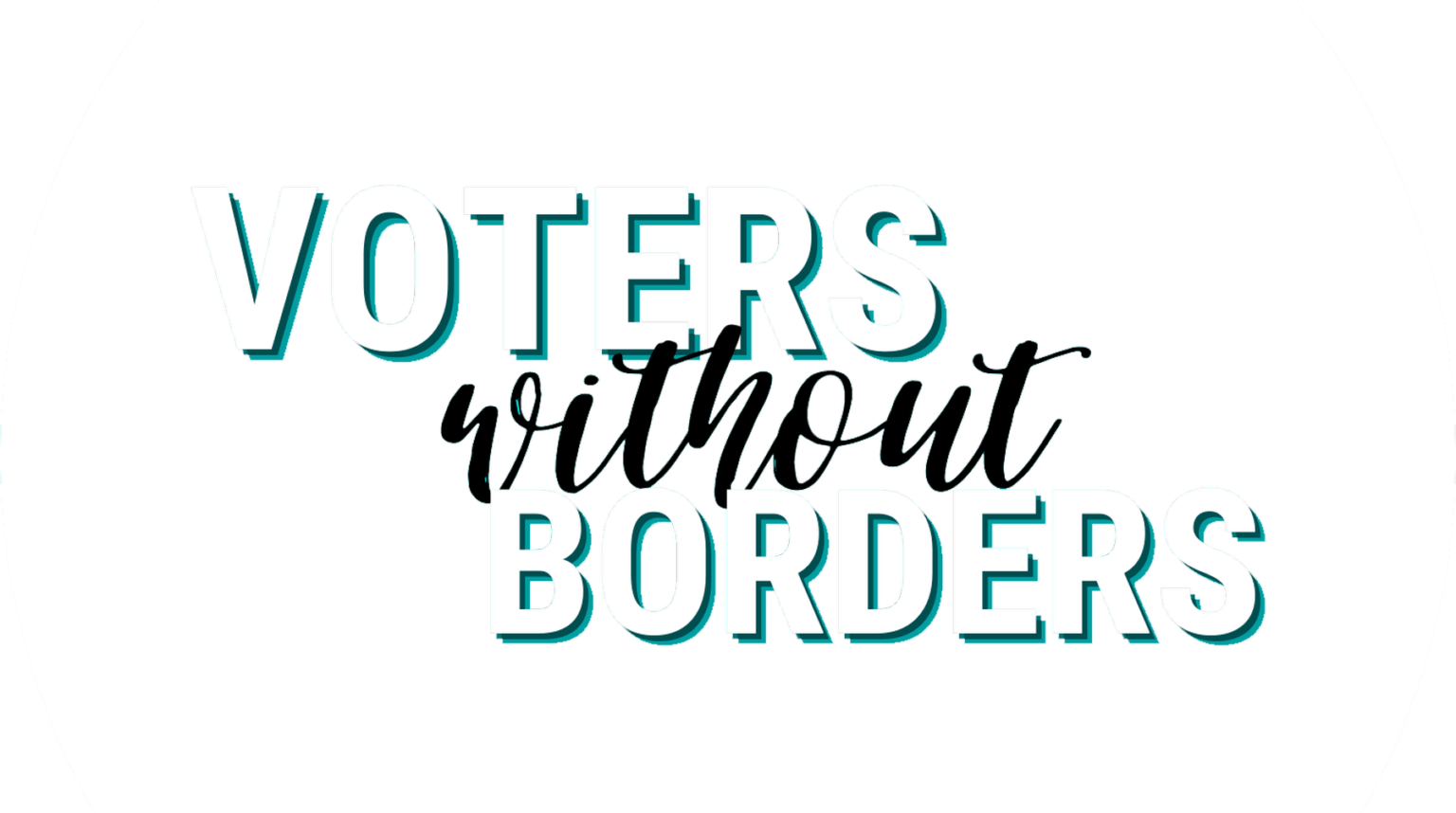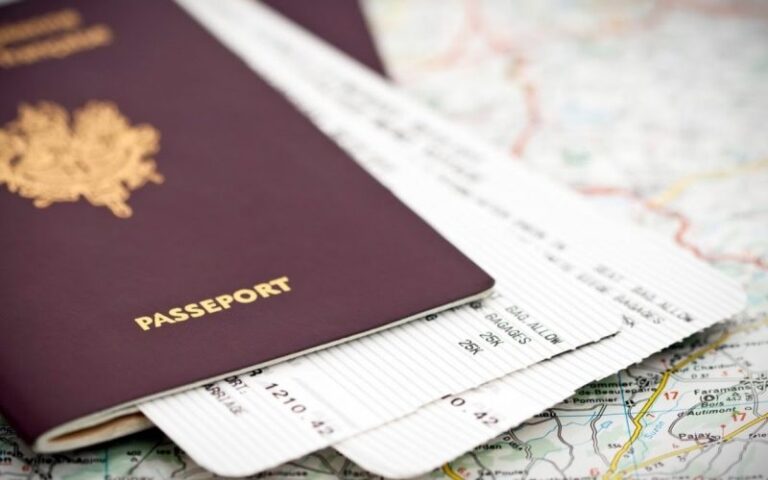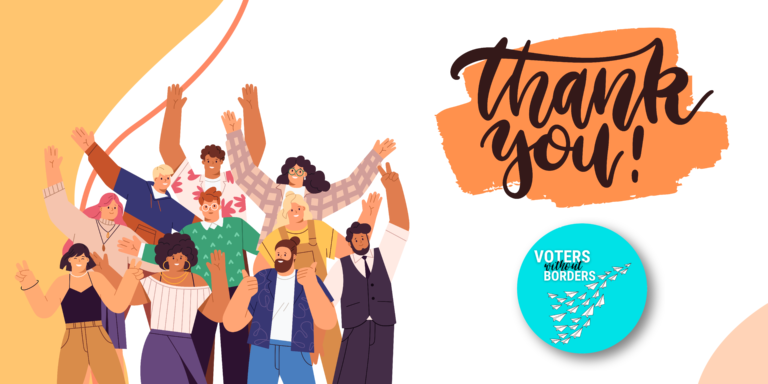This was Sinéad O’Keeffe’s speech to the European Commission for ‘ECI Week’ on the topic of online campaigning in the time of Covid-19.
Good morning to all, Dia daoibh go léir,
My name is Sinéad O’Keeffe and I am a member of the Voters Without Borders European Citizens’ Initiative. Our ECI strives to give real meaning to European citizenship and achieve better integration of mobile EU citizens in the democratic decision-making process in the EU. It aims:
- to recognise EU citizens as voters, no matter if they live in their EU Member State of origin or another member state;
- to remove obstacles to voting and standing in elections across borders;
- and to provide the choice to EU citizens of registering to vote in their country of residence or country of origin in municipal, regional, national and European elections, and referendums.
We opted to undertake this ECI on a low-cost basis, and so we are quite dependent on a supportive eco-system for ECIs in general.
The main subject of this session is on how we are managing during this pandemic to shift our campaign online
Covid-19 has affected us since the very beginning. Pre-launch planning took place online and offline, depending on the month. On September 1st we managed to launch with an event in person and online. Still, restrictions had to be respected as we were operating between two lockdowns. It was hard even then to collect signatures by paper. On this day we also campaigned in front of the Parliament — this had strategic importance, however such campaigning cannot be done these days. As you know ECI campaigns rely both on online tools and in-person contact to collect signatures and further the initiative, so the question is what we do now?
Events
All events that previously were due to take place in-person in various cities across the EU have now moved to online events. For example, we spent two months preparing for a live event in Berlin which could not take place, so we moved to an online space.
Organising events takes a lot of time, and having to move online has really disrupted things, especially since we have a low budget — precious man-power is thus sacrificed. Organising essentially two events incurs costs. We had to buy Zoom-pro in order to organise events and meetings for working remotely. Also, we have had to invest in online advertising on Facebook and other social media, as advertising methods we previously intended on employing have been made redundant. We had not planned on depending so heavily on Facebook paid advertisements, so currently, we are really pushing fundraising efforts.
Our Annual Conference is coming up on the 1st and 2nd of December – we started organising it as a Summer University in January, but as Covid-19 came we had to postpone it until December. Up to now we have been preparing it to be in-person. It hasn’t been clear if we can still do this in person, or if we have to switch online, so we are preparing for both scenarios. Now we are quite sure that the whole Conference will be online. As stated, preparing for both has doubled our work — however we did it regardless in the hope that we would be able to even have it partially in-person.
Signature Collection
Just to remind you, all ECIs must collect 1 million signatures from a minimum of seven Member States in order for the Commission to consider their proposals. Signature collection has been affected by the pandemic as we have to depend on people to come across our campaign, then to follow the link to the ECI website and sign the campaign often on their own initiative rather than just signing a form in person with us. In normal times, we could have gone out perhaps once a week or have our partners do so, to collect signatures. This is something we had planned for until the restrictions in March and in October forbid us to do so.
What an ECI depends on is individual citizen support. Because we cannot do any in-person grassroots campaigning breaking out of the EU bubble has been very difficult. It is especially hard to reach out to citizens on the move, who are the main targets of our ECI.
Media
Another problem is the fact that we must compete with other transnational issues to get media coverage – such as the US elections, Brexit and of course Covid-19. This means that it is very difficult to get any sort of large news following, as we fall below these for important news. In addition we have no live events, thus there is less of a spectacle and it makes the campaign less newsworthy.
In the run-up to the launch we have found cooperation with the Commission on technical issues and the use of the forum to be excellent, but there could have been more cooperation to promote the start date. The Commission issued a press release when it took the decision to register the ECI back in March 2020. However, we had not been alerted in advance of this and the signature collection had not been started at this stage. Thus, an additional press release on the launch date would have definitely been beneficial.
In addition to this, I speak quite frankly when I say that perhaps the Commission is not really clued in on ECIs. For example, on Monday morning and this morning, when I looked at their website’s homepage, I did not see anything about this week being ECI week. Now this may have been updated even since, but regardless, publicising an ECI is already difficult enough, the Commission should enable and lend more basic assistance such as a slot on their homepage. ECIs are the voices of EU citizens, however most citizens do not even know this voice exists. Therefore on something such as the homepage of the Commission website, ECIs should be front and centre.
Because the ECI tool is not really known by most EU citizens, the media will not cover what we are doing unless there is something emotive related to it. This is something we try to work on by connecting our campaign with different elections within Member States. This is a good method as it appeals to people within Member States who face different problems.
What else are we doing?
Other than appealing to personal and national situations, we are currently reviewing our websites, and wonder to what extent on the ECI website it is possible to signal news and latest developments happening in relation to our campaign. For example, if there is a Commission proposal which goes some way to meet our demands, can that be mentioned? Or can additional information for an ECI be included and updated on the signature collection webpage? – the idea would be to have links to news updates that are happening to the campaign. This would provide additional materials informing website visitors on the progress of individual ECIs. The problem is that the ECI website is too static, and that it does not attract or keep a viewership. Thus ECI campaigns are not entirely visible.
In relation to how the ECI forum could be improved
On a one-to-one basis the ECI forum was questioned by us in the run-up to the launch on two issues: legal basis and fundraising. The replies were very professional. While the forum is a useful contact point, informal contact with officials from the different institutions is still important for certain questions. Yes, our task force has had a training session with the forum and the written advice has proved useful in framing our strategy. But, the questions we often have are unfortunately not suited to the forum because it is not an interactive hub, meaning that we have to come up with questions and they need to be specific in order to get an answer.
What we would like is a more proactive approach from the forum, in order to collect more insight and more information, which would be useful to every ECI organiser. We understand that these problems may be due to administrative culture, making it difficult for the forum to be proactive, however, it would be great to see some more guidance.
Looking forward
Looking forward, there are a number of things that, if improved, could help us succeed in gathering the 1 million signatures, spreading the word of the campaign and making the ECI tool more known.
Obviously signature collection on paper is out of the question and even if it was allowed we would not want our volunteers or partners to be at risk of contagion. We have raised this question with the Brussels authorities and are looking at ways to encourage online signatures at safe street-level events and may have answers as to what is possible and what is not possible, which could help.
We are also constantly trying to innovate our online signature campaign, however, we need some help with this from the Commission.
The ECI website tracks signatures country by country so we have a breakdown of nationalities in terms of signatures. Looking into next year’s campaign plans, we want to be told how many EU citizens have signed, that are located in their country of origin, and how many have signed that are living abroad. It is important to say at this stage that we are not asking for personal details but only a breakdown of the numbers already published by nationality.
This information is needed in order to better focus our strategy in 2021. For example, we need to decide to what extent we target the EU citizen population as a whole or the roughly 14 million residents in another Member State. In relation to citizens on the move, there are far more EU citizens resident outside the EU, than EU citizens that make use of their rights to freedom of movement inside the Union – however we do not know whether any signatures are coming from the European diaspora. Finding out this information would greatly help us to reach out and engage with citizens.
As a lesson learned from organising a European Citizens’ Initiative and during the times of a pandemic, I believe I speak for all ECI organisers when I say it is extremely important to increase the budget for participatory democracy and information around it. For instance, we propose, with other civil society organisations, to include ECIs as part of the ordinary framework of institutional communication and to strengthen the Europe Direct information points by allowing them to collect signatures for ECIs and petitions to the European Parliament.
We are convinced that in this critical period the view is shared that it should be possible to collect signatures without excessive costs to team health, wellbeing and our low-budget initiative. Assistance in kind has to be stepped up and a more enabling framework and eco-system for ECIs be set up.
Thank you, agus go raibh míle maith agat go léir.
Share this article on online campaigning in the time of Covid-19



